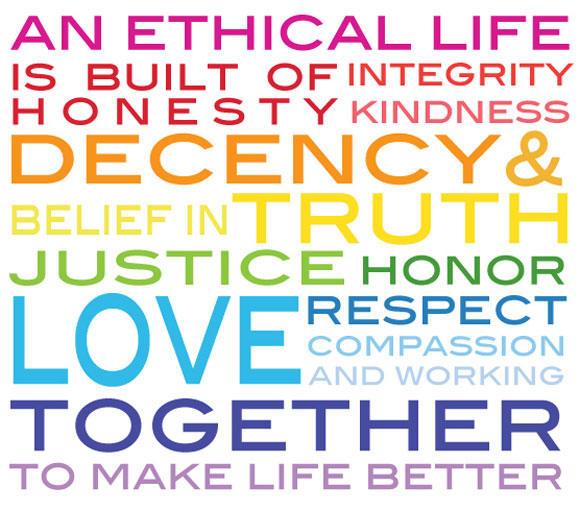Ethics are “the conscious reflection on our moral beliefs."
Examples of common moral issues:
Abortion (PRO-LIFE)
Genetic manipulation and cloning (CREEPY)
Euthanasia (FOR IT)
Death penalty (AGAINST IT)
Same sex marriage (SING IT)
Already I am sure that you do not necessarily agree with my views on these subjects. They are highly controversial for a reason, all of them relating back to personal ethics.
Examples of common Child and Youth Care moral issues:
The No-Touch policy
Physical restraint
Medication
Unskilled practitioners
I know where I stand on medicating children for various diagnosis, but it may not be the same as my coworker's point of view, or supervisor's, or class mate's.
Our ethical beliefs are constantly being put to the test, whether we realize it or not.
So, what kinds of ethical principles are there?
Ethical foundations:
1. Ethics of religion
2. Ethics of egoism
3. Ethics of duty
4. Ethics of respect
5. Ethics of rights
6. Ethics of justice
7. Ethics of care
8. Ethics of utilitarianism
9. Ethics of virtue
Many people think there is as right way;
some think there are many ways;
and some don’t think at all.
What make us different?
The occurrence of difference depends totally on whether or not, and how people see it, whether they pay attention to it, and whether they are motivated to do anything about it.
Individuals cannot deal with difference unless they perceive difference, and they cannot come to terms with difference unless they are willing to own that the difference exists because of personal, internal calibrations of what those individuals believe to be true.
It all boils down to moral courage:
Moral courage is readiness to expose oneself to suffering or inconvenience. It arises from firmness of moral principle. One of the hardest tests of moral courage is the ability to face the disapproval of friends for an action that is compelling in order to be at ease with personal conscience.
There is no tool to use to make ethical decisions. They are constantly changing and competing with different values.
Moral Sensitivity
Are you really aware of others? Do you take their ethics into consideration? Their experiences?
If you act in your head- you're ignoring a stimulus, and thereby not as self aware as you think.
If you act in your heart, you're much more self aware.


No comments:
Post a Comment